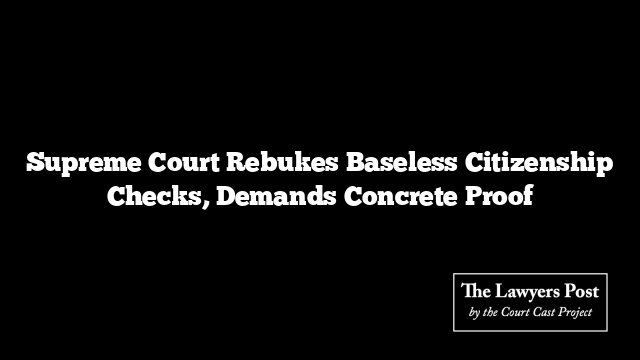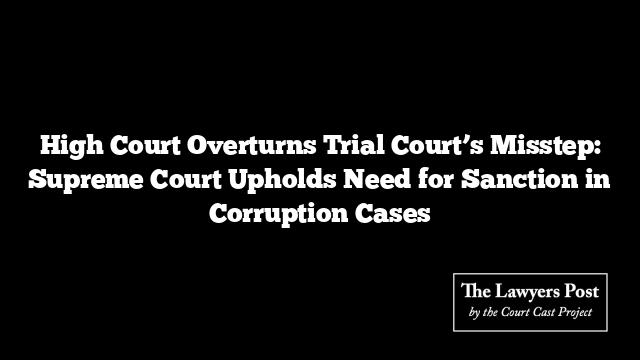The burden to prove Indian citizenship will shift on the person only if the authorities share the materials with them, the Court stated.
The Supreme Court on Thursday ruled that authorities cannot randomly accuse individuals of being foreigners without solid evidence. The court emphasized that mere suspicion is not enough to question someone’s nationality.
In a significant decision, the court overturned a 2012 declaration by a Foreigners Tribunal in Assam, upheld by the Gauhati High Court in 2015, which had labeled the appellant a foreigner. The Supreme Court criticized the authorities for initiating proceedings based on unfounded suspicions.
“First, it is for the authorities concerned to have in their knowledge or possession some material basis or information to suspect that a person is a foreigner and not an Indian,” the court held, directing that this judgment be shared with all tribunals under the Foreigners (Tribunal) Order, 1964.
A bench of Justice Vikram Nath and Justice Ahsanuddin Amanullah overturned the Gauhati High Court’s judgment, which had confirmed the Foreigners Tribunal’s decision declaring Md. Rahim Ali a foreigner.
The court questioned the legality of Section 9 of the Foreigners Act, which allows authorities to randomly accuse individuals of being foreigners without substantial evidence. The court noted the lack of material basis for the inquiry initiated by SP(B) Nalbari’s direction to the Sub Inspector on May 12, 2004.
“The pleadings and the record are silent as to what was the basis of the S.P. (B) Nalbari’s direction? What materials or information had come to his knowledge or possession that warranted his direction? Obviously, the State cannot proceed in such manner. Neither can we as a Court countenance such approach,” the court stated.
As per Section 9 of the Foreigners Act 1946, the burden of proof is on the person who is proceeded against. However, the court clarified that for the accused to discharge this burden, they must be informed of the information and material available against them.
“Even for the person to discharge the burden statutorily imposed on him by virtue of Section 9 of the Act, the person has to be intimated of the information and material available against him, such that he/she can contest and defend the proceedings against him,” Justice Amanullah wrote in the judgment.
The court highlighted that strict proof of such allegations must be provided to the accused at the initial stage. It criticized authorities for bypassing settled principles of natural justice under the guise of Section 9 of the Act.
In the case at hand, the Tribunal had declared the appellant Md. Rahim Ali a foreigner in 2012, citing his failure to prove Indian nationality. Despite his claims of his family’s presence in India since before 1971, the Tribunal dismissed his documents due to minor discrepancies. The Supreme Court noted that such variations are common in electoral rolls and government records and cannot be used to declare someone a foreigner.
The Supreme Court set aside the Gauhati High Court’s judgment and the Foreigners Tribunal’s order, emphasizing the grave miscarriage of justice and the absence of material evidence to support the investigation initiated by the Superintendent of Police, Nalbari.





